November 02, 2023
“This blog was originally written in Spanish and automatically translated using artificial intelligence.”
This year, TINTA was once again invited to coordinate the interpretation team for the Global Alliance of Territorial Communities (GATC) at New York Climate Week (NYCW). The week provided an important opportunity for Indigenous and local community leaders to ensure that climate solutions, and action, are led and guided by their knowledge and world visions. While the common understanding is that interpreters work to change words from one language to another, that’s only part of what our interpretation team strives to do. Our team has spent time crafting relationships and building trust with those for whom we are providing language support and even longer understanding the issues at hand. It is these acquired skills that allow us to contextualise how and what we interpret, in the best interest of our allies of Indigenous Peoples and local communities (IPLCs), and with our dedication to enabling fair and fruitful conversations at the forefront.
While we often speak about language barriers, what we don’t mention nearly as much is how facilitating multilingual discussions can actually serve as an important entry point to solidifying and building connections. We don’t talk enough about the opportunity that conversations made up of multiple languages, diverse cultures, and sometimes diverging world-views, gives us to pause. The slight time lag that we experience when interpreting from Portuguese to French, or Indonesian to Spanish, actually gives listeners an extra moment to understand one another, to reign in and make sense of their thoughts. More importantly, it also gives those supporting the conversation, interpreters and language specialists, the opportunity to accurately convey the emotion and nuances behind the speaker’s words. This is essential in ensuring that their plight, their frustrations, fears, losses, but also wins, don’t get lost in translation, which can only serve to widen the gaps and barriers in the conversation, as opposed to bringing discussants closer together, and nearer to a common understanding.
Here’s more detail on how we worked to move beyond quickly interpreting words to supporting long-term conversations at this year’s New York Climate Week:
TINTA is now in its third year of providing language support, and has spent many more years helping to build the necessary connections to form robust alliances and networks of Indigenous and local community leaders working towards a more just and equitable world.
This year, our team had the honour of facilitating speaking engagements for Levi Sucre of the Mesoamerican Alliance of Peoples and Forests, Sara Omi of the Territorial Women Leaders of Mesoamerica (Mesoamerican Alliance of People and Forests), Cristiane Pankararu of the Brazil’s Indigenous People Articulation and Juan Carlos Jintiach, of the Global Alliance of Territorial Communities. On a practical level, our work enabled all leaders to tailor their contributions to the audience at hand and fellow panellists, and in turn, allowed those in attendance to use this important opportunity to exchange ideas with community leaders.
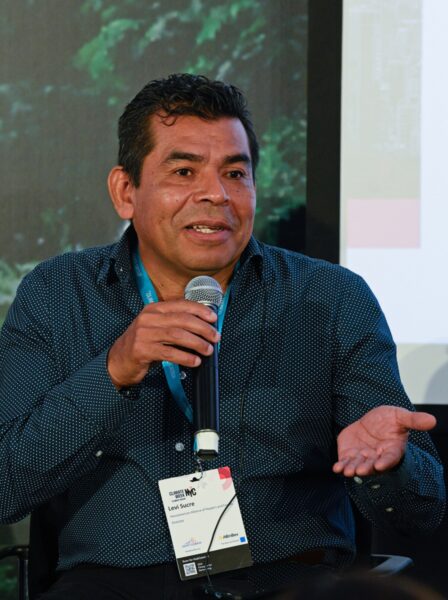
Levi Sucre speaking engagement at the NYCW Climate Group event Challenges and opportunities in financing climate justice. Credit: Climate Group
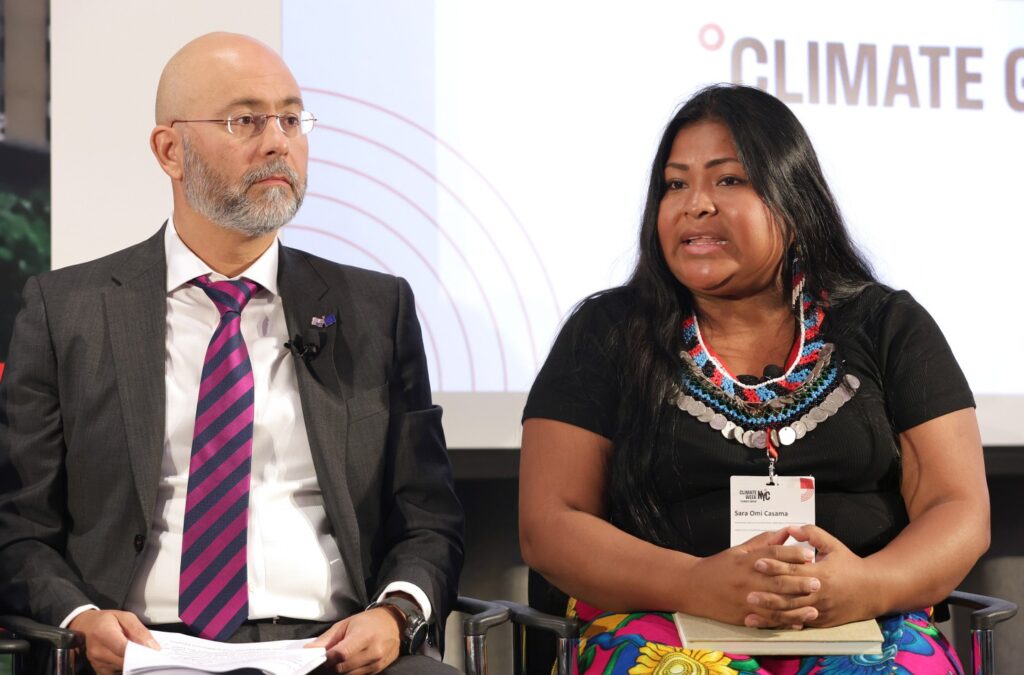
Sara Omi speaking at NYCW Climate Group event Challenges and opportunities in financing climate justice. Credit: Climate Group
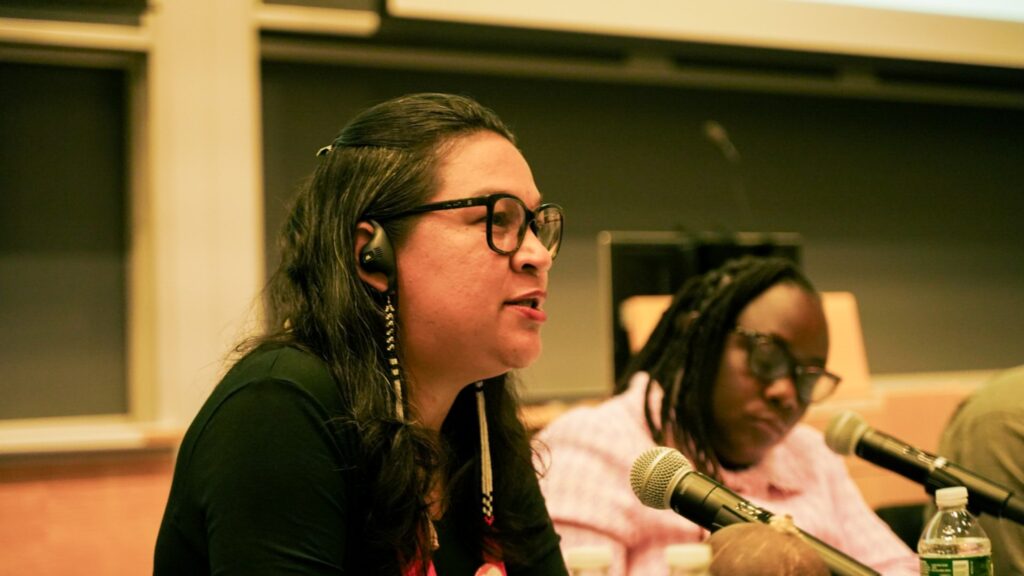
Cristiane Pankararu’s speaking engagement at Defenders event at Columbia University, organised by Global Witness at Columbia University. Credit: Priscila Tapajowara
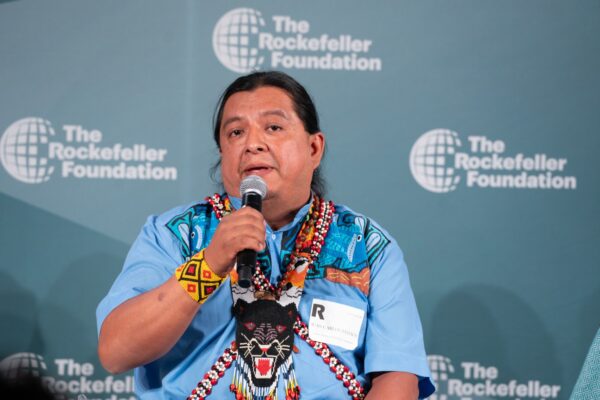
Juan Carlos Jintiach’s speaking engagement at the UN General Assembly Food Day at the Rockefeller Foundation. Credit: Global Alliance of Territorial Communities
are serving informs our ability to support linguistically
At the start of New York Climate Week, TINTA’s team was invited to a preparedness meeting to ensure alignment of messaging and strategy in view of the important upcoming week. This meeting, which was an internal one of the Global Alliance of Territorial Communities, provided a platform for review and sharing of updates on the organisation’s progress throughout the year. Additionally, leaders engaged in constructive discussions aimed at enhancing their decision-making processes to drive more effective and impactful outcomes. Being entrusted to be part of meetings such as these allows us to enable critical thinking and conversations on the important work being done to reaffirm how Indigenous Peoples and local communities are the guardians of the Earth’s biodiversity amid pressing environmental challenges. We are able to facilitate these conversations, in part, because we have a deep understanding of what the discussions are about and the potential that they hold.
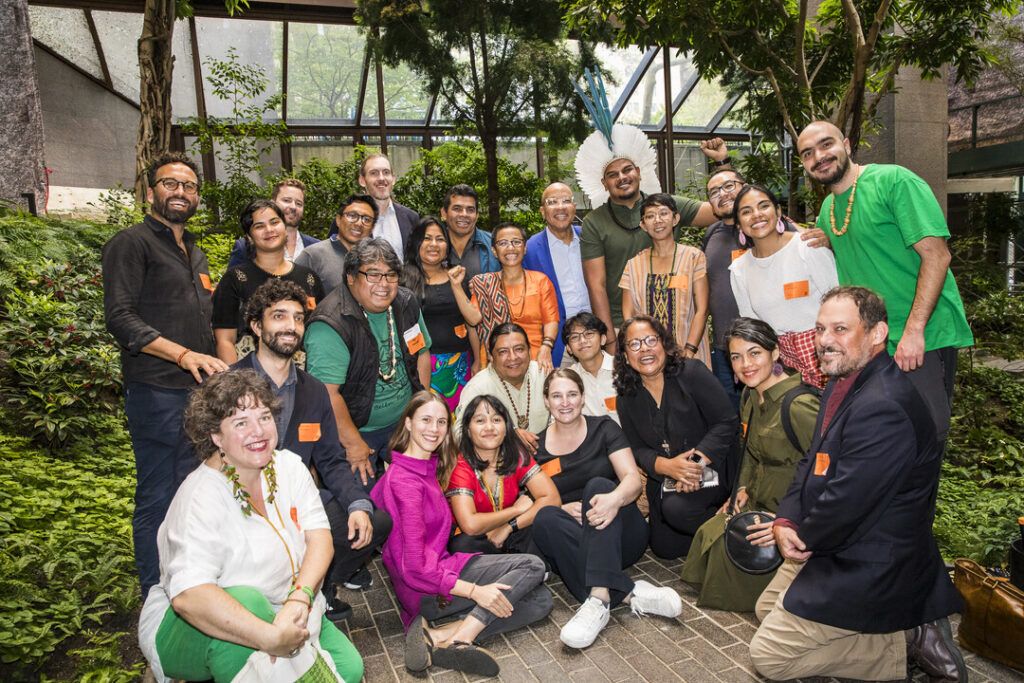
Tree planting ceremony at Ford Foundation. TINTA provided simultaneous interpretation in four languages, reconnected with longstanding allies and forged new connections. Credit: Global Alliance of Territorial Communities.
Our team also facilitated a roundtable dialogue on the importance of Indigenous knowledge as a response to the climate, humanitarian and environmental crisis, in collaboration with the GATC and Columbia University. The discussion sought to establish and nurture collaborative relationships between IPLCs organisations, and academia to explore the integration of traditional knowledge into research and development processes, while upholding the intellectual property rights and cultural integrity of indigenous communities. In this roundtable, GATC leaders presented their five demands: territorial rights, free, prior, and informed consent, direct financing, protection of life, and traditional knowledge; and discussed the progress and challenges towards implementing them, and the urgent need to rethink the role of academia as effective allies in these processes.
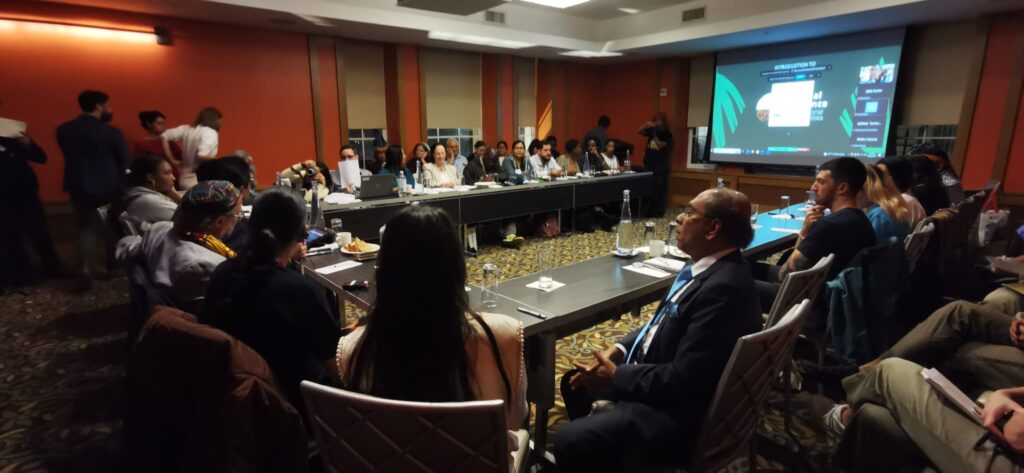
TINTA’s interpretation support ensured seamless understanding for Portuguese speakers in particular, who had not been considered when the event was organised. Credit: Diana Harland de Benito
Forest climate finance has been a critical point of conversation of late, and New York Climate Week was no exception. Along with the Ford Foundation, TINTA provided support for a conversation on rights, participation and benefits for Indigenous Peoples and local communities in forest climate finance. The aim of the panel and workshops was to bring together leaders from indigenous peoples and local community organisations, government, philanthropies, private sector, and international organisations to discuss the openings created by emerging mechanisms for jurisdictional approaches to forest finance. Multilingual interpretation was provided by the organisers during the panels. TINTA provided a combination of simultaneous and consecutive interpretation in several different language combinations for each table during the workshops.
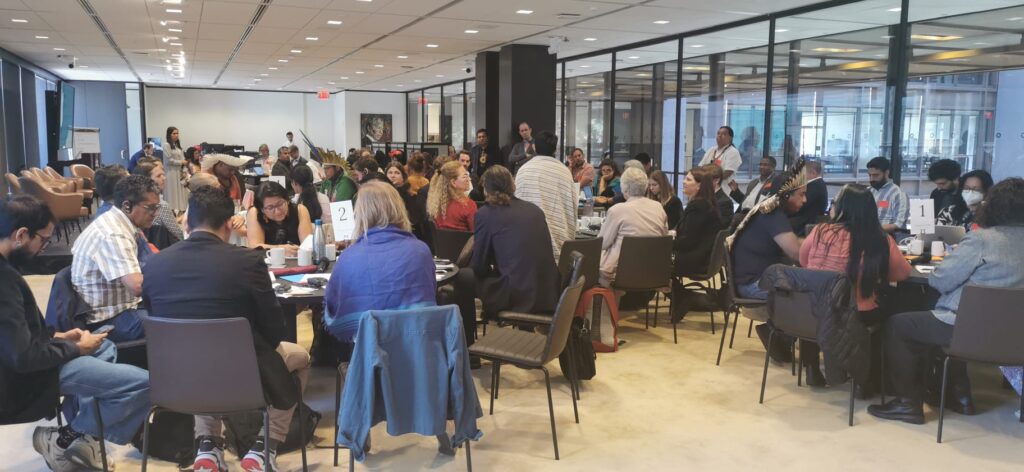
TINTA’s interpretation support facilitated seamless multilingual dialogues. TINTA’s input was essential in the configuration and distribution of participants within the physical meeting space. Credit: Diana Harland de Benito
Ultimately, while we do much more than providing language support, part of TINTA’s mission and vision is indeed to be at service. As a global platform for capacity building, facilitation, and cross-regional connection to reinforce local communities and indigenous peoples organisations, part of our mission is to weave the ties that can help to form the basis of their collective success.
Overall, our team was honoured to have the opportunity to provide interpretation in English, Spanish, Portuguese and French, supporting several meetings, panels and events that facilitated the GATC’s communication with each other, as well as participants who did have language commonalities with their delegates. The delegates represented forest organisations that form part of the GATC’s coalition, from Brazil, Central America, Indonesia and Central Africa.
Here is where you can follow along the great work being done by the delegation who joined us in this journey: